Several agencies are co-located within the RTMC including the Florida Department of Transportation (FDOT), Florida Highway Patrol (FHP), the Florida Fish and Wildlife Conservation Commission (FWC), Jacksonville Sheriff’s Office (JSO) and the North Florida Transportation Planning Organization (TPO). The main objective for these agencies is to work together towards safe and efficient travel in the Northeast Florida region. The RTMC is the first Transportation Management Center in Florida to co-locate staff across so many agencies, to include local county staff.
Working together towards safe and efficient travel
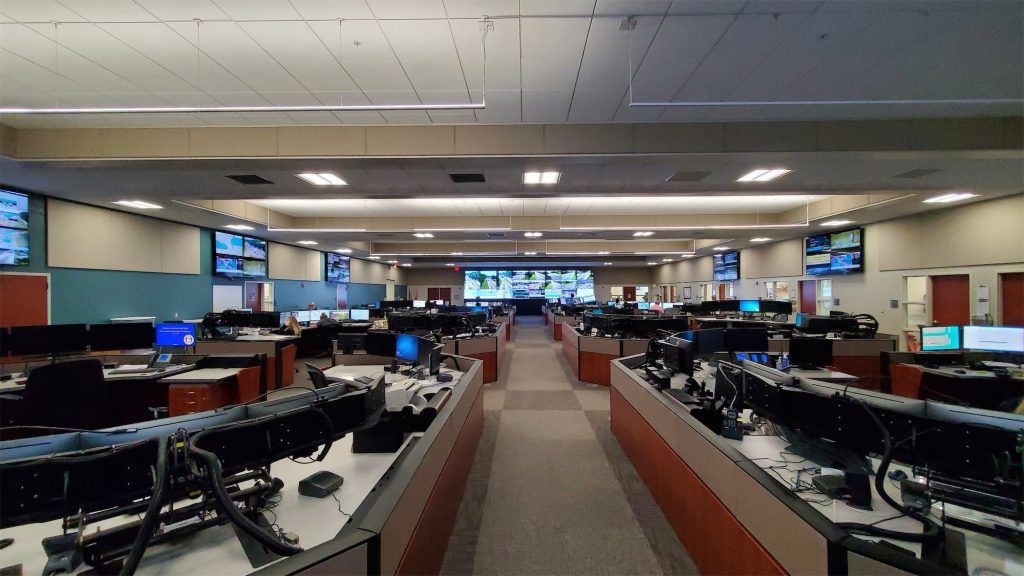
North Florida Transportation Planning Organization (TPO)
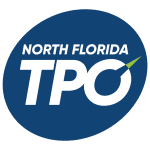
The North Florida TPO (then called the First Coast MPO) began its first Intelligent Transportation Systems (ITS) study in 2003, focusing on ITS technology deployment options to alleviate congestion along the Mathews Bridge/Arlington Expressway corridor. In the following years, the TPO conducted studies and worked with FDOT, Jacksonville Transportation Authority (JTA), and municipal and technology partners to fund and deploy a wide range of ITS and traffic management initiatives. The North Florida TPO funded the design and construction cost of Regional Transportation Management Center (RTMC) building at just under $11 million. The partner agencies broke ground in early 2014 and moved into the completed facility in late 2015. Within the RTMC building, the TPO has 5,000 square feet of office space including a Board Room featuring advanced communications and environmental controls.
Florida Highway Patrol (FHP)
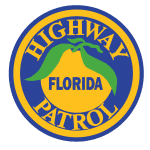
The Florida Highway Patrol’s (FHP) Jacksonville Regional Communications Center is co-located in the RTMC and handles dispatch of FHP Troops B and G, including 18 counties. FHP and the TMC work together to re-open roadways according to the FDOT Open Roads goal of 90 minutes. In order to achieve that goal, FHP and TMC staff work together to coordinate information between the two agencies. Generally, FHP is the main point of contact for all calls associated with traffic crashes, roadway incidents, special events and any other occurrences on interstates and state roads. The TMC, through the camera network, can be the primary in identifying incidents and notifying FHP. The TMC Operators assist FHP by dispatching the appropriate responders to the incidents to help with Maintenance of Traffic (MOT), Rapid Incident Scene Clearance (RISC) and any other request that will assist in clearing incidents and re-opening the roadway. Motorists needing the assistance of Road Rangers call *347 (*FHP) to ask for help and FHP provides the information to the TMC Staff for dispatch of the Road Ranger Service Patrol. TMC staff also assist the FHP Duty Officers in JRCC, by locating the incidents on camera and putting the image on the video wall, allowing the Duty Officers to give updated information to the Troopers in the field. This partnership is essential for the safety of motorists and first responders, as well as working to meet the goal for the Open Roads Policy.
Florida Fish and Wildlife Conservation Commission (FWC)
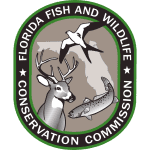
The Florida Fish and Wildlife Conservation Commission was established in 1999 with the goal of managing fish and wildlife resources for their long-term well-being and benefit to people. The North Central Florida region encompasses many rural counties that host an abundance of wildlife. These areas include Madison, Taylor, Hamilton, Suwannee, Lafayette, Dixie, Columbia, Gilchrist, Levy, Citrus, Baker, Union, Bradford, Alachua, Nassau, Duval, and Clay Counties. As such, an integral part of FWC’s program includes animal rescue. Oftentimes when an animal is rescued, it is brought to the Regional Transportation Management Center until it can be picked up and relocated by the appropriate Agency.
Statewide, the FWC protects and manages more than 575 species of wildlife, over 200 native species of freshwater fish and more than 500 native species of saltwater fish. The FWC strives to strike a balance between these species and the needs of approximately 20 million Florida residents and millions of visitors who share the land and water with Florida’s wildlife.
Conservation efforts require extensive collaboration and partnering with local, state and federal agencies to maintain diverse and healthy fish and wildlife populations for the benefit of all Floridians and visitors. The FWC focuses on the ecosystem and landscape in order to provide the greatest benefits to the widest possible array of fish and wildlife species. Accomplishing this mission ensures ecological, economic, aesthetic, scientific and recreational benefits.
To report wildlife law violations anywhere in the state, 24 hours a day, call the toll-free Wildlife Hotline at 888-404-FWCC (888-404-3922).
Jacksonville Sherriff’s Office (JSO)
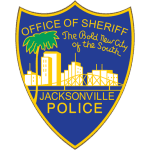
The Jacksonville Sheriff’s Office (JSO) is comprised of approximately 3,500 employees, including nearly 2,000 sworn police officers, corrections, and civilian personnel. JSO maintains the highest professional standards to protect a community of nearly one million citizens. In partnering with the Regional Transportation Management Center, JSO plays a key role in the strategic implementation of hurricane response plans, traffic management and incident coordination. JSO officers cover two shifts inside the RTMC, Monday through Friday from 7am to 11pm. Response times are expedited when coordination is managed from one central location. JSO is instrumental in providing traffic information on arterial roadways within the City of Jacksonville that may not be readily available using ITS devices. This coordinated and structured approach between the two agencies allows for maintenance of traffic and quicker response times, while also ensuring additional safety measures are in place for both the motoring public and law enforcement officers.


